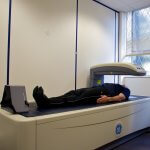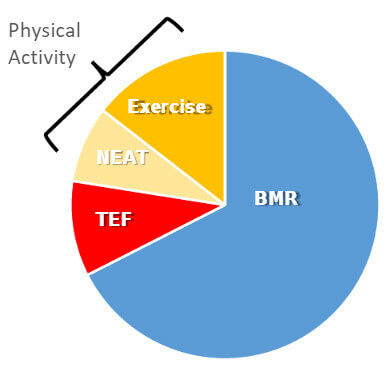Are you trying to lose weight? If so, you may have considered tracking your body weight to measure your progress. But is this the best way to track your weight loss? Let’s examine the pros and cons of tracking your body weight.

Weighing yourself can be discouraging if you don’t see the results you want
Weighing yourself can be one of the most frustrating aspects of health and fitness. It can be extremely discouraging if you try to lose weight or gain muscle but do not see the desired results. While having a general idea of your body weight over time is essential, relying too heavily on stepping onto the scales each day could prevent you from seeing the other benefits, such as increased energy or even how your clothes fit differently. Take the time to track your weight and other improvement factors, such as strength tests and performance metrics, for an accurate assessment. Focusing on what you’re doing right rather than obsessing over small details is often the key to success and satisfaction with achieving your goals.

You might not be losing fat, even if the number on the scale goes down
It can be incredibly disheartening to spend weeks or months diligently following a weight-loss plan only to find that the scale number has not changed. However, it is important to remember that fat loss and weight loss are not necessarily synonymous. You might well be seeing a reduction on the scale, yet still not be losing fat – because muscle weighs more than fat, you could be reducing your muscle mass and simply replacing it with fat. There are plenty of techniques you can use to check how your body responds to any exercise regimen or diet you may have chosen; testing for lean body mass and hydration levels with bio-impedance machines, for example, are just two practical ways. Identifying these key metrics will help you track progress in a fat loss rather than just an elusive number on a piece of equipment.
Muscle weighs more than fat, so you could actually be gaining muscle mass and losing fat

You may be disappointed when stepping on the scale if you lose weight, but keep in mind that muscle is far denser than fat, so that it can weigh more. This means that even if the number on the scales isn’t decreasing, you might slim down your waistline and build muscle. One of the best ways to track this is by measuring yourself periodically and taking photos over time – both of which indicate whether you are replacing fat with muscle. However, remember that building muscle requires dedication to fitness routines and a healthy diet with vital nutrients – without them, any potential gains can quickly be reversed.
 If you’re tracking your body weight, make sure also to measure your body composition (fat vs. muscle)
If you’re tracking your body weight, make sure also to measure your body composition (fat vs. muscle)
If you’re serious about tracking your health and fitness progress, paying attention to more than just your body weight is important. Although body weight is a valuable indicator of overall health, monitoring changes in your body composition – i.e., the percentage of fat versus muscle – is even more telling. By understanding how changes in diet, exercise, and lifestyle affect the relative proportion of fat vs. muscle tissue that composes the human body, you can get a clearer picture of how healthy (or unhealthy) your habits are and take steps accordingly to ensure long-term success.

There are other ways to track your progress besides just weighing yourself – how do you feel? How do you look? Your energy level? Etc.
While stepping on the scale daily is a great way to get an accurate indication of progress, it is far from the only one. It’s also essential to consider other aspects such as how you feel and looks in clothes, your energy level throughout the day, and any changes that come with exercise. Paying attention to these metrics will allow for further insight into your progress. Plus, success looks different for everyone, whether that means seeing visible abs or having more energy for weekend activities with friends. Having non-scale goals can provide real motivation and lead to a healthier lifestyle.
Weight is an essential signifier of progress, but it’s not the only one. You may be doing everything right and seeing no changes in your weight, but still experience progress in other ways such as feeling better, having more energy, seeing improved clothes fit, or having a healthier lifestyle. So don’t obsess over the numbers on the scale if you don’t see them moving as you want. Instead, focus on how you feel in your body and set goals aligned with that. Take time to recognize even small improvements and celebrate yourself for reaching those milestones! Weight loss can seem like a long journey – we must climb over the many hurdles and plateaus along the way – but it doesn’t have to be so hard or discouraging. With all the different tools available, like measuring body composition and tracking other health indices, remember that it’s about much more than just matching a number – it’s about understanding our bodies better and creating sustainable steps to keep ourselves healthy.


